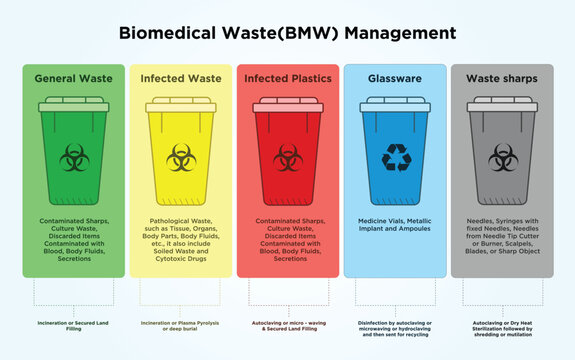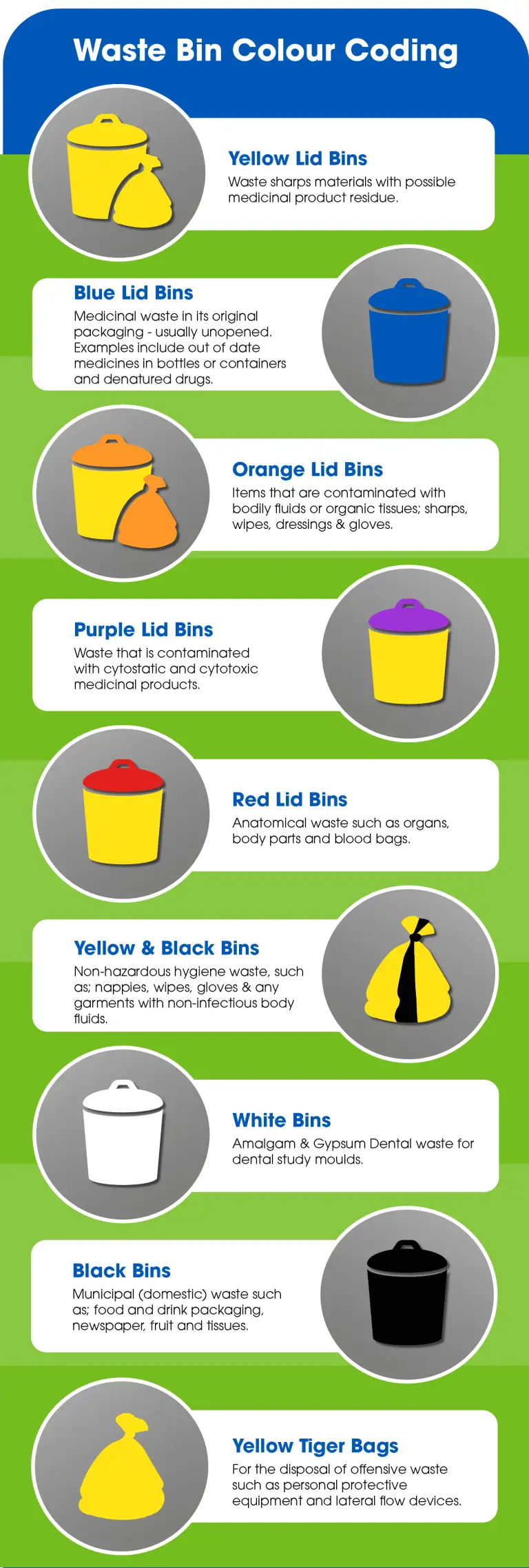Guaranteeing Safe Handling and Disposal of Medical Waste
Making certain safe handling and disposal of medical waste is of vital relevance in healthcare settings. Incorrect administration of medical waste can posture significant risks to the atmosphere, public health and wellness, and healthcare employees. This requires adherence to rigorous standards and methods for its safe handling and disposal. In this introduction, we will check out the value of proper medical waste management, the risks connected with incorrect handling and disposal, in addition to the standards and methods that can be applied to ensure its risk-free disposal. Furthermore, we will go over the relevance of training and education and learning for healthcare professionals in order to maintain a clean and risk-free health care environment. By complying with these methods, we can efficiently mitigate the possible dangers related to medical waste.
Relevance of Appropriate Clinical Waste Monitoring
Appropriate medical waste monitoring is of utmost value in making sure the security and well-being of healthcare specialists, individuals, and the general public. Clinical waste refers to any kind of waste generated by healthcare centers during the medical diagnosis, therapy, or immunization of human beings or animals. This waste can pose significant health and wellness threats if not taken care of and dealt with correctly.
Among the primary reasons proper medical waste monitoring is important is to stop the spread of contagious conditions. Clinical waste, such as used needles, polluted dressings, and organic products, can carry unsafe virus. If not handled and disposed of properly, these virus can be transmitted to health care workers, individuals, waste handlers, and also the general public, resulting in the possible outbreak of diseases.
Furthermore, appropriate medical waste administration assists safeguard the atmosphere - medical waste removal. Clinical waste has hazardous materials, including chemicals, drugs, and radioactive compounds. When not handled properly, these materials can contaminate soil, water bodies, and the air, posturing a significant risk to communities and public health
Additionally, reliable clinical waste monitoring guarantees compliance with worldwide requirements and regional laws. Federal governments and governing bodies have actually developed standards and procedures to make sure the risk-free handling, storage, transportation, and disposal of clinical waste. Complying with these regulations is important to stay clear of legal effects and keep the reputation and reputation of medical care facilities.
Threats of Improper Handling and Disposal

If medical waste is not properly disposed of,Patients can additionally be subjected to these transmittable diseases. If contaminated needles or other sharps are not disposed of in assigned puncture-proof containers, they may mistakenly prick people, leading to potential infections. In addition, if clinical waste is not segregated properly, there is a risk of cross-contamination between various sorts of waste, additional increasing the possibilities of condition transmission.
Improper disposal of clinical waste can also have detrimental effects on the setting and the public. If clinical waste is not treated and gotten rid of appropriately, it can pollute water sources, soil, and air, causing the spread of pollutants and illness. This can have lasting consequences on ecological communities and public health.
Standards for Safe Handling of Medical Waste
Implementing efficient protocols for the risk-free handling of medical waste is necessary in making sure the defense of healthcare specialists, individuals, and the basic public. These guidelines are important in decreasing the threats connected with the handling and disposal of clinical waste, such as infections, injuries, and environmental contamination.
Most importantly, health care centers have to establish a detailed waste administration plan that sticks to neighborhood, nationwide, and worldwide regulations. This plan must include clear guidelines on waste partition, product packaging, transport, storage space, and labeling. It is essential to divide various types of waste, such as sharps, transmittable products, drugs, and non-hazardous waste, to stop cross-contamination and advertise safe disposal.
Furthermore, health care personnel must get comprehensive training on proper waste handling techniques. They must be informed on the prospective risks of medical waste, the appropriate use personal protective equipment (PPE), and the appropriate procedures for handling, moving, and disposing of different sorts of waste.
Moreover, healthcare centers ought to consistently keep track of and audit their waste management techniques to guarantee conformity with standards. This includes performing normal examinations, reviewing waste handling procedures, and offering feedback and training to team member.
Efficient Approaches for Waste Disposal
To ensure the safe handling and disposal of medical waste, it is essential to use effective methods for waste disposal. Medical waste can position substantial threats to public health and the setting if not handled and gotten rid of effectively. For that reason, health care centers and waste administration companies have to apply appropriate techniques to minimize these risks.
One reliable strategy for waste disposal is partition. It entails dividing various kinds of clinical waste based on their characteristics. Partition permits the appropriate therapy and disposal of each waste group, minimizing the capacity for contamination or injury. Health care facilities need to give clear standards and training to team member on exactly how to set apart waste correctly.

Additionally, medical care centers must collaborate with qualified waste management firms to ensure proper disposal of clinical waste. These business have the competence and devices required to securely manage and dispose of clinical waste in compliance with regulations and ideal practices.
Training and Education for Medical Care Professionals
Health care professionals play a critical function in guaranteeing the risk-free handling and disposal of clinical waste via detailed training and education. It is crucial for doctor to have a deep understanding of the prospective dangers connected with medical waste and the correct protocols for its management. By getting correct training, healthcare specialists can reduce the prospective transmission of infectious illness, protect against environmental contamination, and secure both themselves and the basic public.

Furthermore, training programs ought to emphasize making use of individual safety devices (PPE) and appropriate hand health techniques when managing medical waste. medical waste disposal. Healthcare professionals need to know how to appropriately use and dispose of PPE to shield themselves from potential exposure to unsafe materials. They must additionally be informed on the significance of normal handwashing and the correct use hand sanitizers to lessen the spread of infectious diseases
Proceeding education and regular updates on medical waste monitoring methods are critical for healthcare experts. As policies and standards develop, it is vital to keep doctor educated concerning any changes in protocols index and finest techniques. This will certainly guarantee that they remain current and maintain a high standard of safety and security in disposing and dealing with of clinical waste.
Verdict
In conclusion, correct handling and disposal of clinical waste is crucial to make sure the safety and security of medical care professionals, clients, and the environment. By adhering to these techniques, we can minimize the potential threats connected with medical waste.
Clinical waste refers to any waste produced by healthcare facilities during the medical diagnosis, treatment, or booster shot of pets or people. If medical waste is not set apart effectively, there is a danger of cross-contamination in between different kinds of waste, further enhancing the possibilities of condition transmission.
It is important to separate various kinds of waste, such as sharps, transmittable products, pharmaceuticals, and non-hazardous waste, to avoid cross-contamination and advertise risk-free disposal. WasteX Medical Waste Disposal.
To guarantee the secure handling and disposal of medical waste, it is crucial to use reliable approaches for waste disposal. In addition, health care facilities ought to develop a routine waste collection and transport timetable to prevent waste buildup and reduce the risk of accidents or contamination.